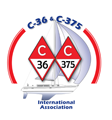This has happened to me a couple of times with different chargers. Back on the boat find out the power was out and the battery was discharged to <10V. when power was restored charger would not start charging (Iota 40 amp). Since this has happened to me before (Guest charger) I keep an old resonant charger on board to get voltage up to 12V then the charger will continue to charge as normal.
Unless I am missing something these new "electronic" chargers are no good when you have a dead battery and can leave you in the lurch.
—
Alex H.
SV Alexanne, 1985 #432 SR
SF Marina Bay YH

A somewhat common observation. Apparently some smart chargers are too smart. When connected to a battery that is deeply discharged, they may fail to recognize that there is even a battery present and therefore not even begin to start the charging process. The most common solution is to temporarily parallel another battery to kick-start the charger. Unless you had your battery switch selected to "both" when you discharged your batteries, then switching your battery switch to "both" will accomplish the parallel.
Nick Caballero
Retired C36/375IA Mk II Technical Editor
[quote=newguy], then switching your battery switch to "both" will accomplish the parallel.[/quote]
I think this is not true if your charging source is connected directly to one bank, relying on an echo charger to keep the other bank (in my case backup starter battery) charged.
S/V Wind Ensemble
1987 C-36 Wing Keel
Universal M25XP 23hp
Hull #705
Coastal Alabama
Yup, if your switch no longer isolates and combines your batteries like a stock Catalina, then you'll need to figure something else out. Myself being an electrical kind of guy, a $20 lawn mower battery and some jumper cables are more useful than a bottle opener. BTW, some folks implement battery combiners or echo chargers and still retain the capability to combine both batteries via the switch, so this is something to check for sure.
Nick Caballero
Retired C36/375IA Mk II Technical Editor